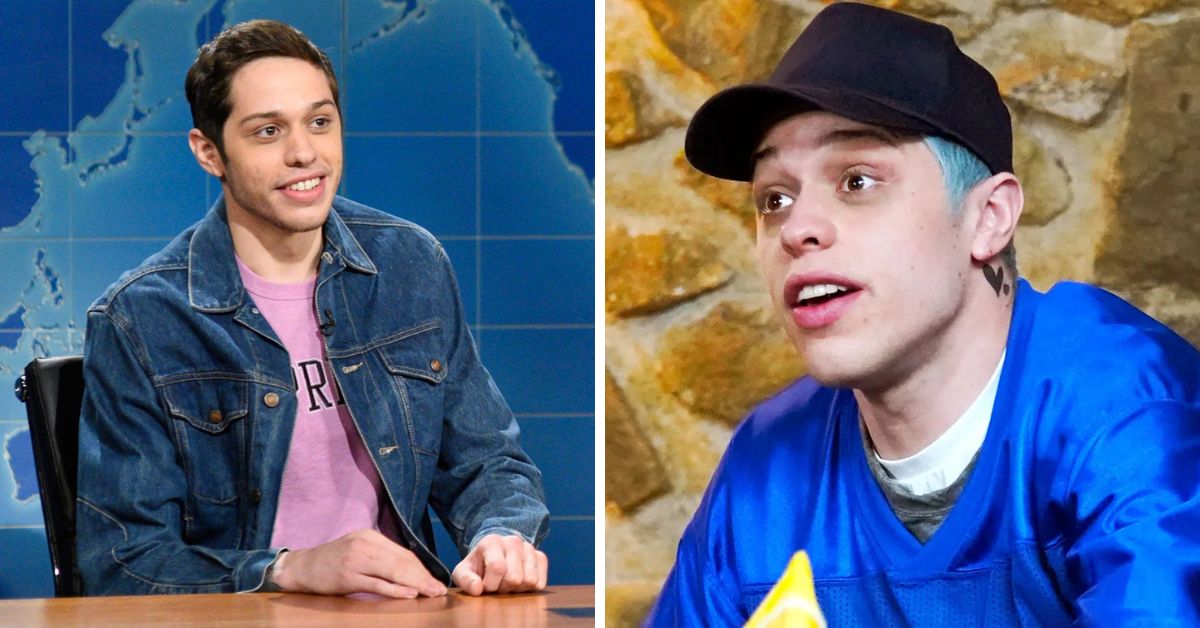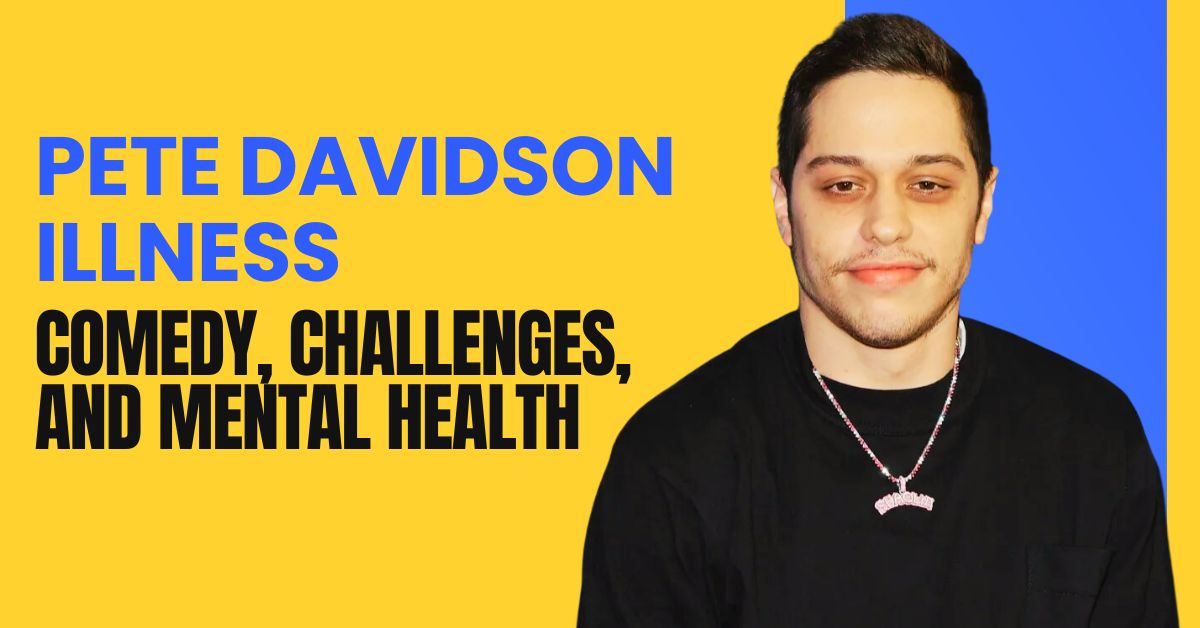Pete Davidson made his first comedy show appearance on MTV’s “Failosophy” in 2013. This was the start of his rise to fame in the comedy world. Since then, he has become a well-known name, appearing in various shows and movies.
One of his notable achievements was co-writing and starring in the film “King of Staten Island,” which was based on his own early life experiences and directed by Judd Apatow. Additionally, Davidson has been a regular cast member on “Saturday Night Live” since September 2014.
Despite his success, Pete Davidson has faced personal challenges along the way. His comedy often revolves around his own life experiences and struggles with mental illness, which has made him relatable to many audiences. However, this has come at a cost.
Davidson has openly discussed his ongoing battle with mental health and has revealed that he has sought treatment in inpatient facilities since a young age. He has even spoken about contemplating suicide during his early school years.
Despite the ups and downs, Pete Davidson’s talent and openness have made him a prominent figure in comedy, and his relationships with well-known celebrities have also made him a frequent topic of discussion on social media.

Check out some other new content we’ve published:
- Madonna’s Illness Forces Tour Postponement
- Jamie Foxx Illness: The Truth Behind Her Vaccine Related Hospitalization!
Pete Davidson Illness
Due to his Crohn’s disease, Pete Davidson used medical marijuana to manage his symptoms, but he noticed that it affected his behavior. In 2016, he began experiencing intense emotions like anger and rage, followed by memory loss. Alongside this, he also faced severe bouts of depression.
Seeking help, Davidson went to rehab and was initially diagnosed with bipolar disorder. However, despite quitting marijuana and following prescribed medications, he didn’t find relief. Eventually, at the age of 23 in 2017, Davidson’s therapist diagnosed him with borderline personality disorder (BPD).
It’s important to note that BPD and bipolar disorder are distinct conditions, although they are sometimes confused. Individuals with BPD often experience a fear of abandonment, lack of self-confidence, and a history of unstable relationships, symptoms that are not typically associated with bipolar disorder.
Pete Davidson Enters Rehab for Mental Health:
Pete Davidson Enters Rehab for Mental Health https://t.co/KBX2wcNPwO
— E! News (@enews) June 29, 2023
Davidson Says That His Life Changed When He Was Told He Had BPD
“I was diagnosed with BPD a few years ago, and I was always so confused and thought something was wrong and didn’t know how to deal with it,” Davidson said in a talk with actress Glenn Close and then an interview for Variety magazine’s Actors On Acting. “Then, when someone finally tells you, it feels like a huge weight has been taken off your shoulders. You really feel better.”
Davidson said that the death of his firefighter father, Scott Davidson, in the September 11 terrorist attacks, when he was seven years old, could have been the beginning of his illness. Davidson is known for having a lot of tattoos. On his left arm, he has his dad’s badge number, 8418.
He said that after his father died, it was hard for him to trust people. Even though he is close to his mother and sister, he has a hard time trusting other people.
“My big thing is trust,” he said. “[My father] was here one day and gone the next.”
Davidson has never shied away from sharing his struggles. He believes that talking about his depression and borderline personality disorder (BPD) is an essential part of coping with them.
During a conversation with radio host Charlemagne Tha God in February 2020, he openly discussed his methods for dealing with depression and thoughts of suicide.
“I’m always depressed, all the time. I have to constantly bring myself out of it,” he said. “I wake depressed, but now I know my steps. I have to go outside and be in the sun for a little bit or go for a walk. It’s all just programming yourself to trick your brain.”
Davidson’s BPD can make his family and friends feel scared. But the same people who make him feel bad are also the ones who help him deal with his illness.
“My rock bottom is when people are scared for my life and I have to go away, and then I have to bring myself back up again. I think I’ve hit it a few times. As long as you’re around good, supportive people, and if you’re strong enough, you’ll be able to get out of it,” Davidson said.
Davidson said that giving up social media in July 2018 has helped him a lot, which makes sense given how famous he is on social media.
When he chose to leave online, he wrote:
“Everybody is different, and there are a lot of treatments for mental illnesses and I have done/am doing all of them,” “And I encourage those who struggle to seek help as well; it has changed my life for the better. I just think it’s f**ked up to stigmatize people as crazy and say that they are unable to do stuff that anyone can do. It’s not their fault, and it’s the wrong way for people to look at things.”
Davidson has spoken out in favor of people who need help because of their mental health.
“My therapists are really on the ball, and I’m really lucky to have them in my life. I recommend that everyone go to therapy.”
People often think that fame brings happiness, but Davidson’s comments about his problems with BPD show that this is not true. His willingness to talk freely about how depression and suicidal thoughts have affected his life and how he’s learned to deal with them show how celebrities can have a positive effect on important issues.
If someone with depression or BPD sees Davidson talking freely about his problems and how he deals with them, it might make them want to get help.
Follow us on Twitter and you’ll always know what’s going on in the world of celebrities. We keep you up to date on what’s going on in the world of celebrities, including exclusive interviews, relationship updates, and exciting news from the world of entertainment.
